Japan were a British New Wave group, formed in 1974 in Catford, South London. The band achieved success in the late 1970s/early 1980s, when they were often associated with the burgeoning New Romantic fashion movement (though the band themselves have downplayed any such connection).







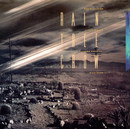
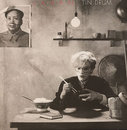
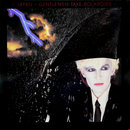
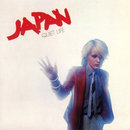
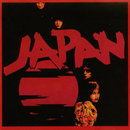
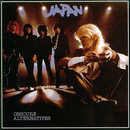
History
Japan in Toronto, 24 November 1979
The band began as a group of friends. Brothers David Sylvian (guitar and vocals) and Steve Jansen (drums), keyboardist Richard Barbieri and bassist Mick Karn studied at the same school. Guitarist Rob Dean joined later, but before the band had its hits. As youngsters they played Sylvian's two-chord numbers mainly as a means of escape; sometimes with Karn as the front man, sometimes with Sylvian at the fore.
They dubbed themselves Japan in 1974, signed a recording contract with German disco label Hansa, and became an alternative glam rock outfit in the mould of David Bowie, T.Rex, and The New York Dolls.
[edit]Early years
The band débuted with the 1978 album Adolescent Sex and followed up with Obscure Alternatives. Both albums sold well in Japan (where the band's name helped them to gain a devoted cult following) and the Netherlands, where the single "Adolescent Sex" was a Top 30 hit; they also gained some popularity in Canada. However in their native UK those albums were largely ignored.
Though influenced by artists such as the New York Dolls, Roxy Music and David Bowie, both albums were widely dismissed by the UK music press as being distinctly outmoded at a time when punk and New Wave bands were in ascendence. The band was managed by Simon Napier-Bell who has also managed The Yardbirds, Marc Bolan, London and Wham!.
[edit]Mid-career
Their third album, 1979's Quiet Life, heralded a significant change in musical style from the earlier largely guitar-based music to a more electronic sound, with more emphasis on Barbieri's synthesisers, Sylvian's svelte baritone style of singing, Karn's distinctive fretless bass sound and Steve Jansen's odd-timbred and intricate percussion work with Dean's guitar playing becoming increasingly sparse and atmospheric. Quiet Life was their last studio album for Hansa-Ariola, although the label would later issue a compilation album (Assemblage) featuring highlights from the band's tenure on the label, followed by a series of remixed and re-released singles.
[edit]Final years
Their final two studio albums, Gentlemen Take Polaroids (1980) and Tin Drum (1981), were released on the Virgin label, and continued to expand their audience as the band refined its new sound and, somewhat unintentionally, became associated with the early-1980s New Romantic movement. Tin Drum in particular is critically regarded as one of the most innovative albums of the 1980s, with its startlingly original fusion of occidental and oriental sounds, and peaked just outside the UK Top 10.[2] Its unconventional single "Ghosts" reached #5 on the UK Singles Chart, becoming Japan's biggest domestic hit.
With personality conflicts leading to rising tensions within the band, Tin Drum was to be the band's final studio album. Long-simmering differences among the bandmembers came to a head when Karn's girlfriend, photographer Yuka Fujii, moved in with Sylvian and the individual members proceeded with their own projects. Rob Dean had already departed towards the end of the Gentlemen Take Polaroids sessions, as his electric guitar work was increasingly regarded as superfluous. Dean subsequently formed Illustrated Man. Karn released his first solo album, Titles, at the same time the band announced their split in late 1982. During this period, Japanese multi-instrumentalist and experimental keyboardist Ryuichi Sakamoto briefly collaborated with the band, and worked directly alongside Sylvian on tracks such as "Taking Islands In Africa". He would continue to work with Sylvian both before and after the band split, and the pair would achieve the hit singles "Bamboo Houses" (1982) and "Forbidden Colours" (1983).
The group's final UK performances came in November 1982, culminating in a six-night sell-out stint at London's Hammersmith Odeon. During this period, guitarist and keyboardist Masami Tsuchiya performed with the band on stage. Japan's last ever performance was on 16 December 1982 in Nagoya, Japan. The band's final Hammersmith concerts were recorded to produce Oil On Canvas, a live album and video released in June 1983. Ironically, the band decided to split just as they were beginning to obtain long-overdue commercial success both in their native UK and internationally, with Oil On Canvas becoming their highest charting UK album, reaching #5 on the UK Albums Chart. Both Hansa-Ariola and Virgin Records continued to release Japan singles into 1983.
All of the band members went on to work on other projects, with varying degrees of success. A reformation of the band members (without Dean) in 1989-1990 under the name Rain Tree Crow produced only one eponymously titled album, released in April 1991, which was well-received by music critics and reached the UK Top 25. Once again, the band dissolved following frictions between Sylvian and the other members.
http://en.wikipedia.org/wiki/Japan_(band)